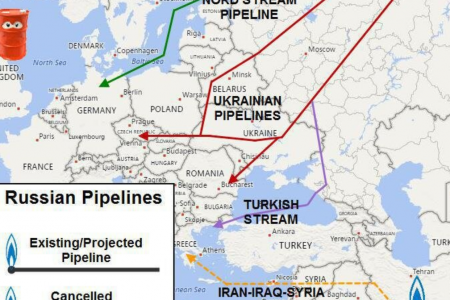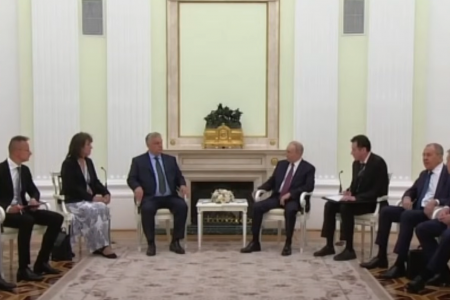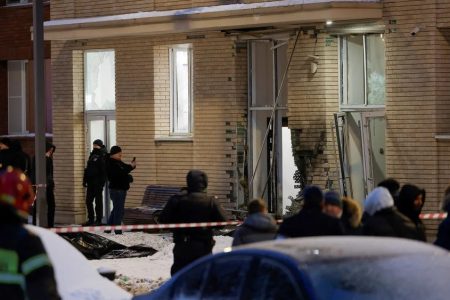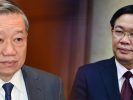
The presence of legislators for the Hoang Sa (Paracels) in Vietnam’s highest lawmaking body National Assembly should be considered a legitimate need, bringing many benefits and meeting the expectations of the people, said Saigon-based human rights lawyer Dang Dinh Manh.
Lawyer Dang Dinh Manh has just proposed the idea of having a member of Vietnam’s highest legislative body National Assembly represent the Hoang Sa (Paracels), where Vietnam claims sovereignty but is in fact controlled by China, amid the context that Vietnam is preparing to re-elect the parliament with 500 seats for the 2021-2026 term.
“Having the Hoang Sa’s delegates in the National Assembly has many legal and political benefits,” Saigon-based lawyer Manh told VOA.
Legal and political interests
“In terms of legal aspect, Vietnam still considers Hoang Sa its own. An occupation cannot interrupt Vietnam’s sovereignty. So I think, there should be a National Assembly member(s) representing the Hoang Sa.”
According to attorney Manh, having a member of the National Assembly for the Hoang Sa is both a “just” need and “to meet the expectations of the people.” Implementing this idea will also bring benefits to Vietnam in asserting sovereignty under international law.
“Even though we do not actually have control over that area, but we still behave it has the value that we do not give up our sovereignty over that area. This is the principle of international law,” Manh added.
Politically, the presence of parliamentary delegates of the Hoang Sa, even if it is just a formality, also “demonstrates the will not to give up sovereignty over the Hoang Sa” of Vietnam, according to the lawyer.
“Actually, there are no Vietnamese citizens in the Hoang Sa, but the fact that Vietnam performs the actions and acts means that Hoang Sa still belongs to Vietnam, it makes a lot of sense politically and legally, that is, we have no intention of renouncing our rights or ownership over that area,” Manh said.
Need flexibility
China gained control of the Hoang Sa in 1974, after defeating the navy of the Republic of Vietnam. Despite sovereignty disputes and protests from Hanoi, Beijing has so far established many administrative areas and supported policies to encourage Chinese businesses and people to come to the archipelago for investment and establishment.
In recent years, Vietnam has also started to make many moves to assert its sovereignty over the Hoang Sa and the Truong Sa (Spratlys), from including these areas on its maps, editing textbooks, bringing this area is on weather forecasts on television … to policies to encourage fishermen to “stick to the sea” to fish in disputed areas.
So, according to Manh, having a member of the National Assembly representing this region will not greatly affect the Vietnam-China relationship, which has always existed a certain doubt even though the two sides are still committed to adhering to the “16 golden word motto” like a good neighbor.
“Although Vietnam still has soft words regarding sovereignty, avoiding stress and complexity, but to a certain extent, it still creates conditions for fishermen to stick to the sea to show the country’s sovereignty. This of course still causes the two sides to doubt each other about their exercise of power at sea,” Manh said.
However, according to the lawyer, the implementation of the idea “National Assembly delegates of the Hoang Sa” will face difficulties according to the current National Assembly election law of Vietnam.
“Because of that, we are losing control of the Hoang Sa and also have no residents in Hoang Sa to hold elections. Therefore, it is necessary to have flexibility or have a specific specification for implementation,” Manh recommends.
On March 3, Mr. Hau A Lenh – vice chairman cum general secretary of the Central Committee of the Vietnam Fatherland Front, informed the press that so far, 63 provinces and cities have completed the consultation conference for the first time, 1,076 candidates were introduced for competing for the 16th National Assembly.
In particular, it is expected that 95 members of the Central Committee of the ruling Communist Party of Vietnam will participate in the National Assembly, while the number of non-party legislators will be structured from 25-50 people. The number of legislators in central agencies is 207 people, accounting for 41.4% of the total number of National Assembly’s legislators, and the number of NA’s legislators from localities is 293 people (accounting for 58.6%).
Thoibao.de (Translated)




























